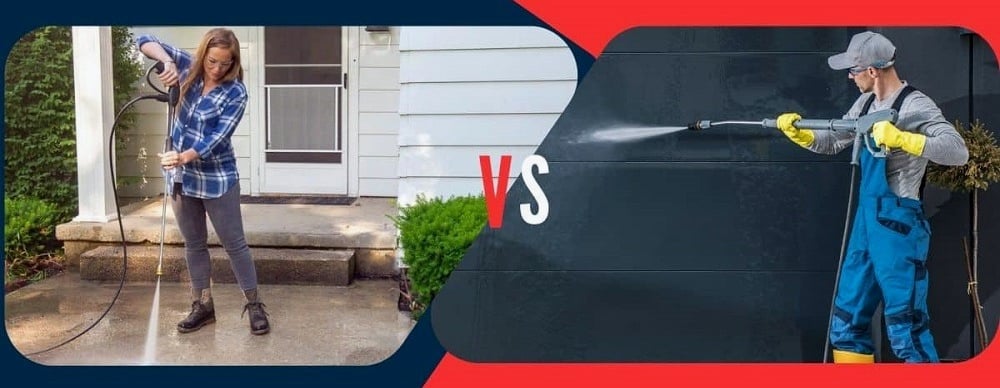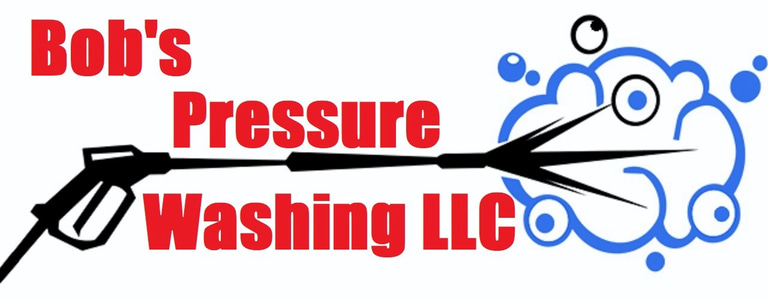Professional vs. DIY Pressure Washing: Making the Right Choice for Your Cleaning Project
Professional vs. DIY Pressure Washing: Making the Right Choice for Your Cleaning Project
BASIC HOME MAINTENANCEEXTERIOR CLEANING SERVICE PROCESSESCURB APPEALPRESSURE WASHING SERVICES


When to Hire a Professional: Situations Where Hiring a Professional is Beneficial
There are several scenarios where opting for a professional pressure washing service becomes not only beneficial but necessary. One of the primary advantages of hiring professionals is the expertise they bring to the table. Experienced technicians have an in-depth understanding of various surfaces and the appropriate cleaning agents, ensuring that the job is done efficiently without causing damage. This expertise is particularly critical when dealing with delicate materials that require soft washing to avoid abrasions or other damages.
The quality of commercial-grade equipment used by professional pressure washing services is another significant benefit. Unlike DIY equipment, which can be limited in power and versatility, professional-grade tools are designed to handle a wide range of cleaning tasks. This equipment can effectively clean large areas and reach high or difficult-to-access places, making it ideal for sizable commercial buildings or rooftops.
In specific situations, such as cleaning a large commercial property or a multi-story residence, the use of professional services can save a considerable amount of time and effort. Managing these extensive projects on your own can be both physically demanding and time-consuming. Professionals can quickly and safely complete these tasks, freeing you up to focus on other responsibilities.
Furthermore, hiring professionals significantly reduces the risk of potential damages or injuries that can occur when inexperienced individuals attempt pressure washing. High-pressure water jets can be hazardous if not handled correctly, leading to accidents or unintended damage to the property. Professionals are trained to operate the equipment safely and use appropriate safety gear to mitigate these risks.
In summary, hiring a professional pressure washing service is advisable in various situations, particularly when dealing with large-scale cleaning projects, hard-to-reach areas, and surfaces requiring special care. The expertise, commercial-grade equipment, and safety measures provided by professionals ensure a thorough and risk-free cleaning experience.
Pros and Cons of DIY Pressure Washing
When considering pressure washing, the decision between professional services and a do-it-yourself approach is pivotal. Undertaking DIY pressure washing offers several notable benefits, primarily revolving around cost-effectiveness. For homeowners conscious of their budget, investing in their own pressure washer can lead to significant savings over time, as hiring professionals can incur recurrent expenses. Additionally, DIY pressure washing affords individuals flexibility in scheduling, allowing them to tackle cleaning projects at their convenience without the need to adhere to a service provider's timetable. Moreover, there is an intrinsic satisfaction associated with personally completing a task and seeing immediate results.
However, it is crucial to weigh these advantages against the potential disadvantages. One prominent challenge of DIY pressure washing is the initial learning curve. Mastering the use of a pressure washer effectively and safely requires time and patience. Without the proper technique, there is a substantial risk of causing damage to various surfaces, from pitting concrete to stripping paint or harming wood structures. This potential for damage can inadvertently lead to higher costs in repairs, negating the initial savings.
Beyond the technical considerations, the physical demands of pressure washing should not be underestimated. The process requires significant effort, stamina, and time, particularly for extensive cleaning projects. Handling heavy equipment and maintaining a steady, precise approach over extended periods can be physically exhaustive, and may not be suitable for everyone. Furthermore, the necessity of acquiring and maintaining the equipment adds another layer of responsibility and potential ongoing costs, such as repairs and replacements.
Careful consideration of these pros and cons can aid individuals in deciding whether DIY pressure washing aligns with their specific needs and capabilities. Ultimately, understanding both the advantages and drawbacks will enable homeowners to make an informed decision, ensuring that their cleaning projects are both effective and efficient.
DIY Tips and Tricks: Advice for Homeowners Who Choose to Tackle Pressure Washing Projects Themselves
For homeowners opting to undertake pressure washing themselves, selecting the right equipment is the first crucial step. Pressure washers come in various types, each suited for different projects. Electric pressure washers are ideal for small to medium tasks like cleaning decks, patios, and driveways. Gas-powered washers, on the other hand, offer more power and are better suited for larger areas or heavily soiled surfaces. It's vital to match the machine to the cleaning project to ensure efficiency and avoid potential damage.
Safety is paramount in pressure washing. Wearing protective gear such as gloves, goggles, and sturdy shoes can prevent injuries from high-pressure streams and debris. It's also critical to understand the machine’s power; starting at the lowest pressure setting and gradually increasing it can help prevent damage to surfaces. Keep the nozzle at a consistent distance from the surface, as too close a range can cause harm.
To clean driveways, begin with sweeping away loose debris, then apply a detergent designed for concrete. Allow it to sit for 5-10 minutes before rinsing with the pressure washer. When washing patios and decks, it's important to use a lower pressure setting to avoid gouging the wood or surface damage. For siding, choose a fan tip nozzle and wash from the bottom up to prevent streaks, ensuring even application and thorough cleaning. Fences, especially wood ones, require careful pressure regulation to maintain their integrity while removing grime.
Avoid common mistakes such as applying excessive pressure on delicate surfaces like wood or vinyl, which can cause irreversible damage. Always use detergents appropriate for the materials being cleaned to enhance efficacy and protect surfaces.
Maintaining your pressure washer ensures its longevity and optimal performance. After each use, flush the unit with clean water to remove any residual detergent and debris. Check hoses and connections for wear and replace them if necessary. Regularly inspecting and cleaning the nozzle heads can also prevent clogging.
Armed with the right equipment and knowledge, homeowners can successfully carry out pressure washing projects, achieving professional-looking results.
